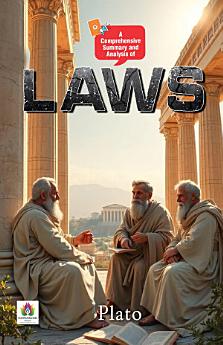A Comprehensive Summary and Analysis of Laws: Demanding Ebook Book
About this ebook
The Athenian Stranger leads the dialogue, challenging the other interlocutors to reflect on the nature of justice, law, governance, and the moral foundations of political life. The work delves into the structure of an ideal state, the role of legislation in shaping moral character, and the relationship between divine law and human law. Plato presents a vision of a mixed government, balancing elements of monarchy and democracy, while advocating for a legal system rooted in reason and virtue.
*Laws* serves as a philosophical treatise on the role of education, religion, and moral discipline in sustaining a stable political order. Unlike *The Republic*, which imagines a utopian society ruled by philosopher-kings, *Laws* proposes a more practical framework for governance, grounded in the realities of human nature and societal complexity. It remains a cornerstone of political philosophy and legal theory, influencing thinkers across centuries.
About the author
Plato (c. 427–347 BCE) was a classical Greek philosopher and the student of Socrates. He founded the Academy in Athens, one of the earliest institutions of higher learning. Plato’s works, including *The Republic*, *The Symposium*, *Phaedrus*, and *Laws*, explore profound questions about justice, knowledge, the nature of reality, and the ideal political order. His influence on Western philosophy and political thought remains unparalleled, shaping the works of figures like Aristotle, Augustine, and Hegel.








